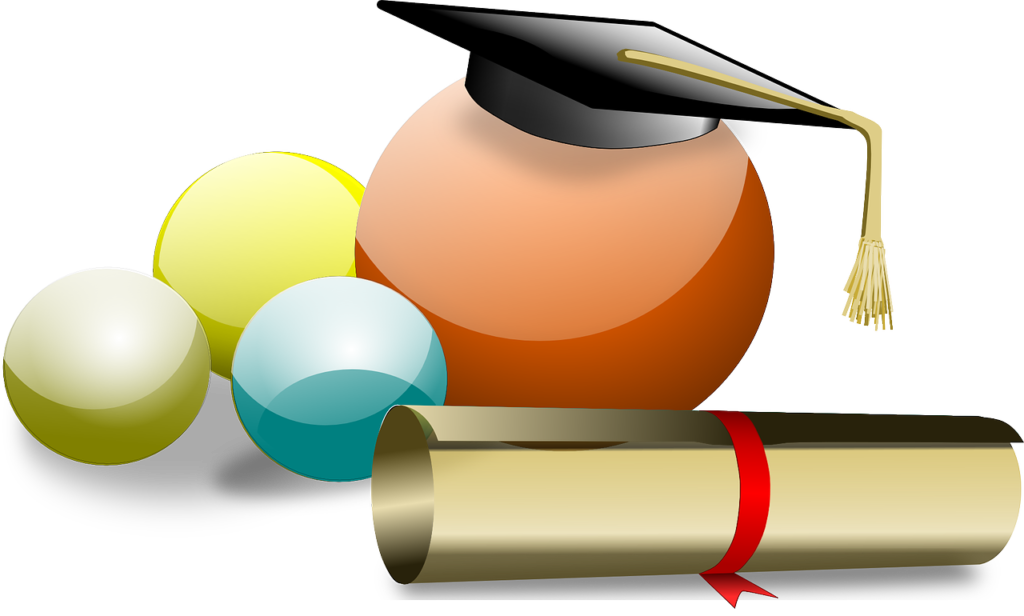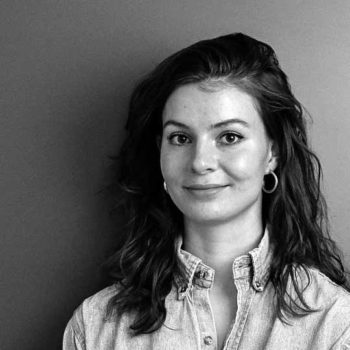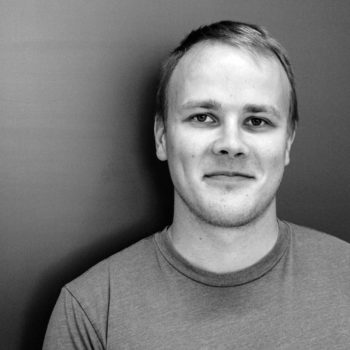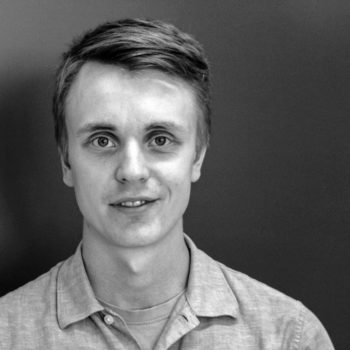Getting started with things is always a bit of a hassle. Completing a PhD is a relatively massive and relatively vague thing. We’ve now been getting vaguely started for a couple of years, and in the meantime, we’ve massively questioned just about everything related. Here, we discuss our experiences and feelings based on the first two years of our PhDs, with emphasis on what we’ve learned about the job and ourselves.

Photo by https://pixabay.com/vectors/graduate-graduation-school-student-150375/
A PhD in the Water and Development Research Group appears exactly the same as in many other universities; make a plan, get funding, publish an X amount of articles, and summarise your findings in a doctoral dissertation. Simple enough? Everything but simple, is our half-educated opinion as three doctoral candidates who are closing on to the planned temporal halfway of their PhD studies. As of this autumn, we were instructed to prepare progress reports and updated research plans for an official midterm review. Doing not only that, we ended up discussing our experiences and feelings so far. Here, we synthesise those discussions with reflections on personal development as researchers and human beings.
Preparing for the midterm review was a motivational rollercoaster. Writing up a progress report and an updated research plan for a committee evaluation sounds rather dry, doesn’t it? And we admit that in the beginning, it was really dry. We’re not sure whether this was due to the top-down approach of the midterm review process, or was it rather due to busy schedules that would favour devoting our time for the so-called actual work. However, after a while – and a couple of browsethroughs of the original research plan – we began to perceive our progress and were happy to update the old plans. In the end, we felt that the midterm review was all for the best. There were bits of sense even in the original research plans, and after learning a trick or two, it was extremely useful to stop and think about the dissertation as a whole. As plans generally tend to change, a brief checkup should certainly be done every once in a while.
But nearly two years and zero first-author articles – why are we even here? Strictly looking at numbers, zero is infinite times less than the required number of published research articles, and there’s no way around that. Just by knowing this, our feelings have often fluctuated, and many of them haven’t been too positive. The “publish or perish” mentality and the occupational disease of impostor syndrome don’t really help with that. We’ve longed for evidence of our skills and ability to complete a PhD, but it has been difficult to find at times with these publication numbers. This has further led us to question our existence as researchers, as well as to doubt whether following the PhD track was sensible right from the beginning. Adding to the existential crises, we’ve struggled with identifying the significance of our work; for whom we’re doing this, how could they possibly benefit from this, and why do we need to do this in such detail? In the worst case, our future involves sitting in a dark corner as a quiet PhD who is detached from reality and unable to receive feedback or co-operate with others. Sometimes, cynicism would be a regrettably tempting choice to cope with our feelings.
We need enough confidence under the shadow of insecurity. Luckily, we’ve always managed to rebuild ourselves from the dark moments of not knowing what and why to do. Accepting, rationalising, and overcoming the doubts and fears has made us not only allow ourselves a certain level of insecurity but also develop a corresponding level of confidence. We agree that learning how to think and lead ourselves towards enormous goals are among the main aims of completing a PhD. On the one hand, we must be able to identify when we should set our opinions under constructive doubt to discuss and receive feedback from those who know more. On the other hand, sometimes we should stand firmly behind our opinion, even in front of those who are more merited on paper – and those are many when you’re in the zero-publication club. We are not going to grow into independent researchers if we always and only assume that others know better. Putting ourselves down should not be the default option, but a balance of healthy insecurity and careful confidence is essential for progress.
Avoid comparing. The players in the academic field consist of a large variety of characters, objectives, positions, and skill sets. Some are world-leading professors steering the direction of entire fields of science, some are postdoctoral researchers eagerly diving into new topics to build their portfolio, and some are doctoral candidates just trying to get their first research article published – among others. All these differently merited and experienced people publish in the same journals and compete for the same grants. Although it’s often hard, we’ve tried to refrain from comparing ourselves to others since that has never proved productive. Such different approaches and ambitions within the academic community make this comparison infeasible. If we really want to make comparisons, we should compare ourselves only to previous versions of ourselves, as that baseline is much more reasonable.
Form your own work. We’ve come to realise that, as obvious and clichéd as it sounds, we should find our own ways of working and developing as researchers. Those ways are not the same for the three of us, they likely differ with some of the endless “five best tips for a PhD” lists, and they are not the exact same ways in which our supervisors and instructors did their PhDs. External guidance is invaluable, and tips are definitely worth trying out, but in the end, both can just be other people’s opinions on their best ways of working. We need to iterate our best ways by ourselves. They are as valid as others’, and we should not be afraid to apply them. In the best case, we won’t disappoint ourselves by overthinking our pace of progress, but we find ourselves having fun.
This text is based on personal experiences and extensive discussions between three doctoral candidates of the Water and Development Research group, as well as their discussions with colleagues and other acquaintances.
Anni Juvakoski
My research focuses on reducing the spread of waterborne diseases among the most vulnerable communities in low- and middle-income countries; currently, I’m looking at diarrhea prevalence and household services in Brazil. I’m doing a PhD because I find personal meaning in doing research, and I’m also hoping to refine the way I think and to broaden my skill set.

Johannes Piipponen
My background is in agricultural economics. Now I’m mapping the extent of sustainable and unsustainable livestock production, looking especially at grasslands. The aim of the work is to help develop a more environmentally sustainable global food production system. I’m doing a PhD to improve my analytical skills and thinking, as well as to try flying with my own wings a little.

Vili Virkki
In my research, I’m aiming to define the local-scale safe operating spaces of future food production systems by downscaling the Planetary Boundaries that demarcate the biophysical limits of the Earth system. I’m doing a PhD because I like in-depth theorising and contemplating on different topics – and it won’t surely be a disadvantage to learn something about research.


